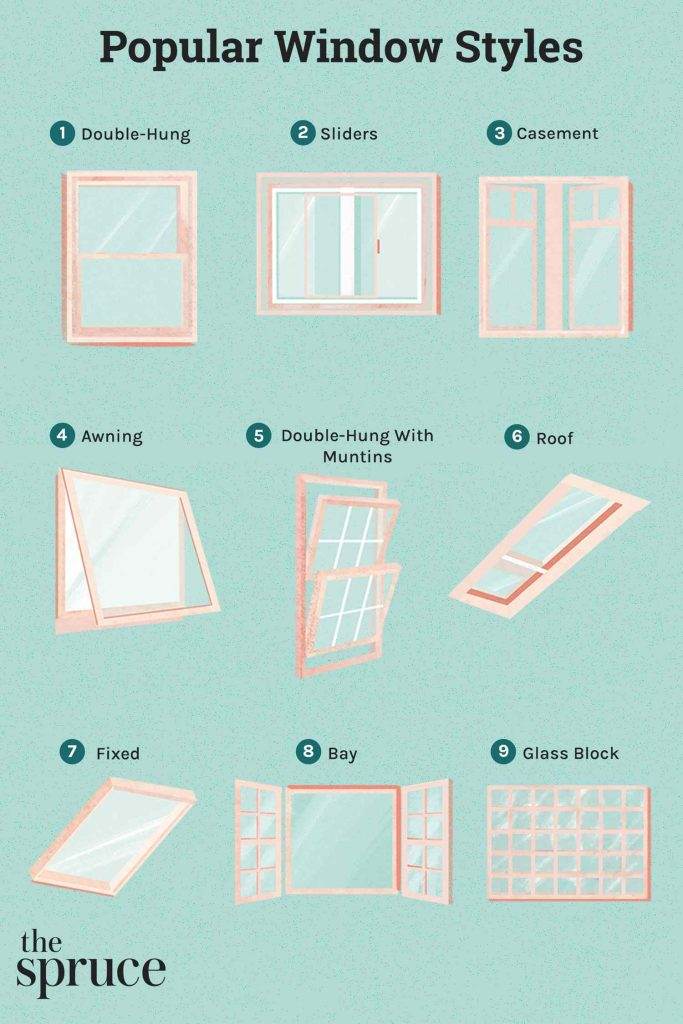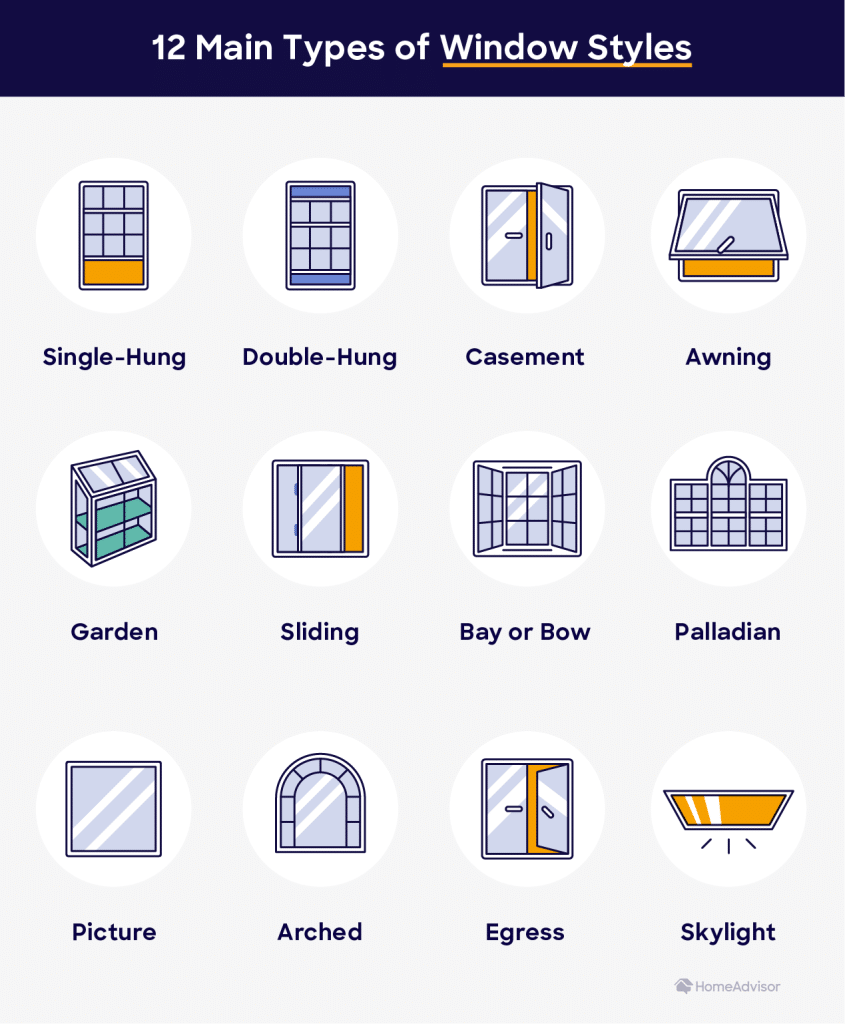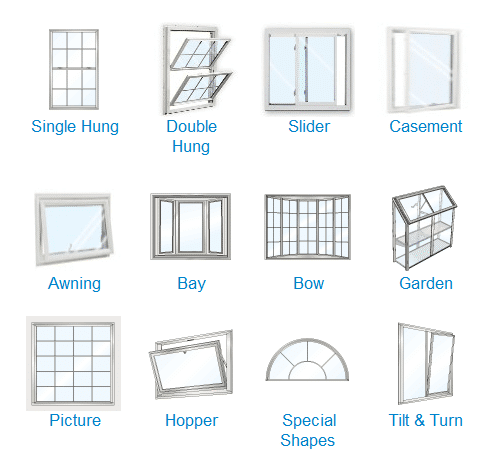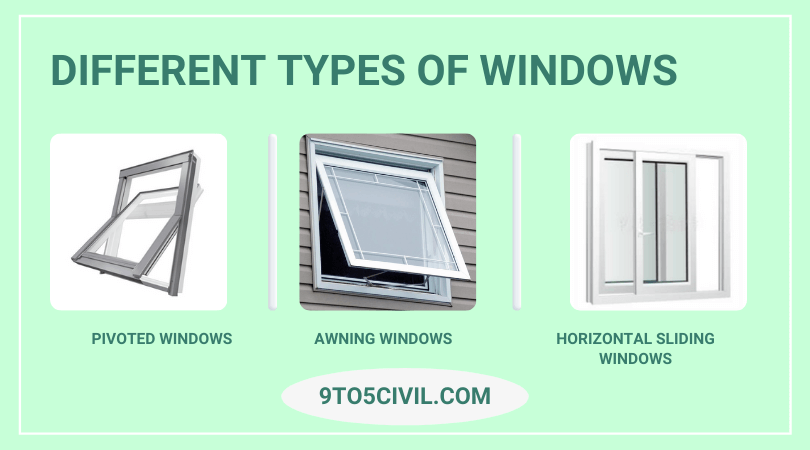Are you in the market for new windows? If so, you might find yourself overwhelmed with options. From double-hung to casement, bay to picture, the choices seem endless. But fear not! In this article, we will guide you through the pros and cons of different window types, helping you make an informed decision that suits your needs and preferences. Let’s take a closer look at which type of window is best for you.

This image is property of www.thespruce.com.
Factors to Consider
When choosing windows for a home, there are several factors that need to be taken into consideration. These factors include energy efficiency, cost, aesthetics, and durability. By carefully considering each of these factors, homeowners can make an informed decision about which type of window is best suited for their needs.
Energy Efficiency
Energy efficiency is an important factor to consider when choosing windows for a home. Windows that are energy efficient can help to reduce heating and cooling costs by minimizing the amount of heat transfer that occurs between the interior and exterior of a home. There are several features to look for in energy-efficient windows:
Double or Triple Pane Glass
Double or triple pane glass windows are designed with multiple layers of glass separated by insulating pockets of air or gas. These layers act as barriers, preventing the transfer of heat into or out of the home. The additional layers of glass also enhance soundproofing capabilities.
Low-Emissivity (Low-E) Glass
Low-emissivity (Low-E) glass is coated with a thin, transparent layer of metallic oxide that helps to control the amount of heat and light that passes through the window. This coating reduces the amount of UV and infrared radiation that enters the home while still allowing natural light to filter in.
Gas-Filled Windows
Gas-filled windows are filled with an inert gas, such as argon or krypton, which has a higher resistance to heat transfer than air. This gas filling helps to further improve the insulation properties of the window.
Window Frame Materials
The frame materials used in the construction of windows can also impact energy efficiency. Materials such as vinyl, wood, and fiberglass offer better insulation properties than aluminum frames, which are more conductive of heat. It is important to consider the type of frame material when selecting energy-efficient windows.
Cost
Cost is another crucial factor to consider when choosing windows for a home. While budgetary constraints are a concern for many homeowners, it’s important to consider the overall value and long-term savings that come with investing in higher-quality windows. Here are some cost considerations:
Initial Cost
The initial cost of purchasing and installing windows can vary greatly depending on factors such as the type of window, size, and special features. It is essential to compare prices and obtain multiple quotes to ensure that the chosen windows fit within the allocated budget.
Maintenance and Repair Cost
Different types of windows require varying degrees of maintenance and repair. It is important to consider the long-term costs associated with maintaining and repairing the chosen windows. Windows that require regular painting, sealing, or specialized care are likely to incur higher maintenance costs over time.
Long-Term Savings
Although energy-efficient windows may have a higher upfront cost, they can lead to significant long-term savings. By reducing energy consumption and minimizing heating and cooling expenses, these windows can offset their initial investment over time. Homeowners should consider the energy efficiency ratings and potential savings associated with different window options.
Aesthetics
The aesthetic appeal of windows is an important consideration, as they play a significant role in defining the overall look and feel of a home. Various factors contribute to the aesthetics of windows:
Window Style
The style of the window can greatly impact the overall aesthetic of a home. Common window styles include casement, double hung, single hung, picture, bay, and bow windows. Each style has its own unique appearance and architectural characteristics, allowing homeowners to choose one that aligns with their preferred aesthetic.
Frame Material and Finish
Window frames can be constructed from materials such as vinyl, wood, aluminum, or fiberglass. Each material offers a distinct look and feel. The finish of the window frame, whether it be painted or stained, also contributes to the overall aesthetic appeal.
Glass Options
Different types of glass can be used in windows to enhance the aesthetics of a home. Options range from clear glass to textured or decorative glass, which can add an extra touch of elegance and style.
Grille Patterns
Grille patterns, also known as window grids, are decorative elements that can be incorporated within the glass panes of some windows. These patterns can add a traditional or colonial look to a home’s exterior, enhancing the overall aesthetic.

This image is property of www.homeadvisor.com.
Durability
The durability of windows is an important consideration, as windows are constantly exposed to the elements and other environmental factors. The following factors contribute to the durability of windows:
Window Frame Materials
Window frames made from different materials have varying degrees of durability. For example, vinyl and fiberglass frames are known for their resistance to rot, moisture, and insect damage. Wood frames, while visually appealing, require more maintenance to protect against these issues.
Weather Resistance
Windows that are designed to withstand various weather conditions are more durable in the long run. Factors to consider include resistance to moisture, extreme temperatures, and strong winds. High-quality windows should be tested for their ability to withstand these elements.
Warranty
The length and coverage of a window’s warranty are important indicators of its durability. A comprehensive warranty can provide peace of mind and protect against unexpected repair or replacement costs. Before making a final decision, it is important to review the warranty information provided by the window manufacturer.
Advantages and Disadvantages of Single Hung Windows
Single hung windows have several advantages and disadvantages that homeowners should consider before making a decision:
Advantages
Single hung windows are typically more affordable than other window types, making them a popular choice for budget-conscious homeowners. They offer a classic and timeless appearance, adding a touch of traditional charm to any home. Additionally, single hung windows are generally easy to operate and maintain.
Disadvantages
One major disadvantage of single hung windows is that only the bottom sash can be opened, which limits ventilation options. Additionally, cleaning the exterior surfaces of single hung windows can be more challenging due to their design. If the lower sash is difficult to access or clean, maintenance can become more cumbersome.

This image is property of www.allweatherkc.com.
Advantages and Disadvantages of Double Hung Windows
Double hung windows offer several advantages and disadvantages:
Advantages
Double hung windows provide more ventilation options compared to single hung windows. Both the top and bottom sashes can be opened, allowing for better airflow and improved air circulation. This can be particularly beneficial in rooms that require increased ventilation, such as kitchens and bathrooms. Double hung windows are also relatively easy to clean, as both sashes can be tilted inwards for easy access to the exterior surfaces.
Disadvantages
One disadvantage of double hung windows is that they can be more expensive than single hung windows due to their increased functionality and design. Additionally, the sashes of double hung windows can be prone to air leakage over time, which can impact energy efficiency if not properly maintained.
Advantages and Disadvantages of Casement Windows
Casement windows have their own set of advantages and disadvantages:
Advantages
Casement windows offer excellent ventilation capabilities, as they are hinged on one side and open outward. This design allows for maximum airflow and cross ventilation, making them ideal for rooms that require optimal air circulation. Casement windows also provide unobstructed views due to their large glass panels.
Disadvantages
One disadvantage of casement windows is that they can be more expensive than single or double hung windows due to their unique design and hardware. Additionally, the crank mechanism used to open and close casement windows can be more prone to wear and tear and may require occasional maintenance or repair.

This image is property of 9to5civil.com.
Advantages and Disadvantages of Custom Windows
Custom windows offer unique advantages and disadvantages that are worth considering:
Advantages
Custom windows allow homeowners to tailor the window design to their specific needs and aesthetic preferences. These windows can be customized in terms of size, shape, style, and even glass options. Custom windows offer the opportunity to create a one-of-a-kind look for a home, enhancing its overall visual appeal and uniqueness.
Disadvantages
The main disadvantage of custom windows is their higher cost compared to standard window options. Custom windows often require specialized manufacturing and installation, which can increase both the cost and the lead time. Additionally, finding reputable suppliers and installers for custom windows may require more research and diligence from homeowners.
By considering the factors of energy efficiency, cost, aesthetics, and durability, homeowners can make an informed decision when choosing the best type of window for their home. Whether it’s single hung, double hung, casement, or custom windows, each option has its own advantages and disadvantages. Ultimately, the choice should be based on individual preferences, budget, and the specific needs of the home.
